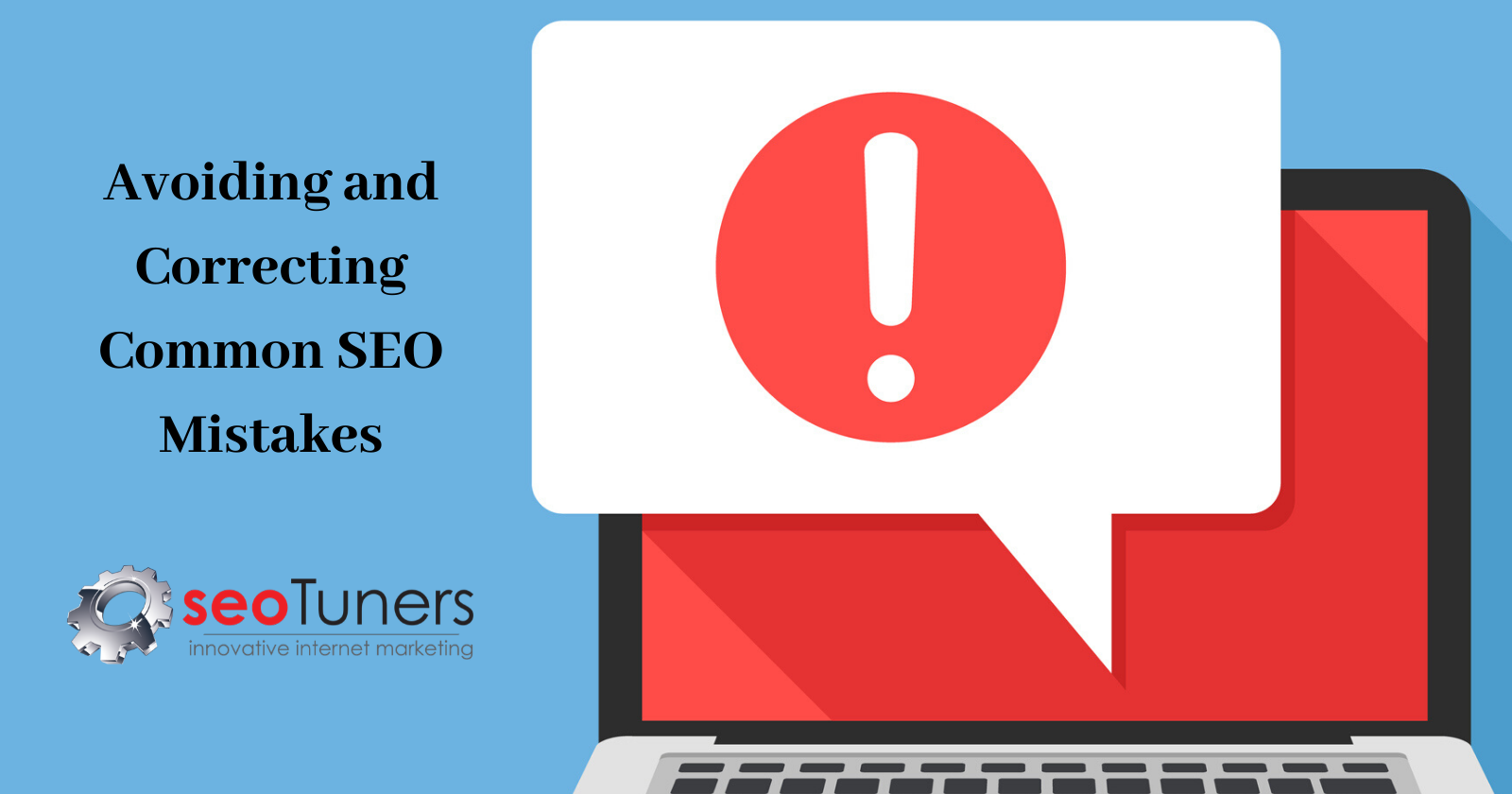Having even a basic of SEO can allow you to better optimize your website, which in turn will make it rank higher in search engines. This ultimately will allow the scope of your business to reach a broader audience and is arguably one of the most important aspects to running a business in this day in age, both online and at a physical location. With SEO being such a crucial part of a successful business website, it’s also important to be aware of the multitude of mistakes that are commonly made while trying to improve SEO.
Some SEO mistakes are easily avoidable, while others take a significant amount of effort to avoid or resolve. Although making some of these mistakes may be detrimental to your business in the short term, if correct, your business or website can begin to be prosperous in search engine rankings. Below are some common SEO pitfalls and how to either avoid or correct them.
Duplicate Content or Unoriginal Content
Duplicating content or creating unoriginal content are two of the most common mistakes that website designers or content creators make in efforts to improve SEO. Always double or triple checking your website for duplicates before posting new content. Although there is no direct negative consequence to duplicating content, it affects SEO rankings because search engines will have trouble determining which pages are landing pages. Your duplicate content may begin to compete against itself through search engine rankings, which lowers the ranking of the content itself as a whole. Unoriginal content will give you less of a chance at ranking higher with search engines and gives content less value, which in turn will negatively impact your SEO.
Keyword Mistakes (Keyword Stuffing and Using the Wrong Keywords)
Keyword stuffing is a common mistake in which keywords are “stuffed” into content with the intent to improve SEO, when in fact it actually lessens the effectiveness of the content in search engine rankings. Stuffing multiples of the same word or phrase into content not only gives that content less value but is also now recognizable by search engines. That’s right, search engines are now capable of determining if the content is keyword-stuffed, and may ultimately rank that content lower in search engines rankings.
Using the wrong keywords may also have detrimental effects on SEO. Keywords allow search engines to identify your content and rank it. If you don’t use the correct keywords in your content, search engines won’t be able to find it. Not using trending keywords or words that rank highest is also a very common mistake that can be avoided by checking keywords on Google Trends or another similar keyword analytics tool.
Irrelevant Content (Content That is Not About Keywords)
Creating irrelevant content or content that does not align with targeted keywords is a mistake that people tend to make while working to improve the SEO of their website. Creating irrelevant content is easily avoidable by checking which keywords (preferably the most optimized) should be used while creating original content on a topic that is specific to your business or organization.
Lack of Quality Links in Content
A lack of quality links within the content may have negative effects on both the value of that content and on search engine rankings in general. Quality links not only bring more value to your content, but will also help rank you higher, as both a website that is linking to other websites and as a website that is linked within other content.
Ignoring Analytics
One of the most common mistakes that businesses or organizations can make on their websites is ignoring analytics and making no efforts to adapt their website using this important metric information. While creating or redesigning content for a website, it’s important to view and know current analytic outcomes and trends specific to that site in order to improve upon its rankings.
Not Making Website Audits
Allowing for audits of your website, especially in this fast-paced, ever-changing digital landscape, is a necessity. Taking a step back and letting someone with a fresh perspective check to see how your website could improve is always beneficial and could have great positive impacts on search engine rankings in general. Website audits are important for all websites want to keep up to date on SEO.
Not Researching SEO Trends
Knowing current trends in SEO is a critical aspect of website development and content creation. Again, the internet is always changing, so knowing what trends within the SEO world are working and are best for the optimization of your website will keep you ahead of the game.
Not Including Meta Descriptions in Title Pages
Including Meta Descriptions for pages not only makes your website more appealing but increases your SEO as well. Giving descriptions for each page is important, and is worth the effort to create or update them.
Not Including Alt Tags For Images
Alt tags for images are another very important aspect of SEO that are commonly not included in many websites. Alt tags are especially important on website images, especially in attempts to meet ADA compliance. This mistake can be avoided by either putting in the extra effort to create alt tags for your images or hire someone else to do it.
Each of these mistakes are easily avoidable or correctable, and by no means should anyone consider their SEO to be a failure if they find these mistakes applicable. Improvements can always be made to SEO, as it is a constant work in progress.
If you’re interested in improving your website’s search traffic, get in touch with us today. SeoTuners can offer an affordable solution for your business to increase exposure and SERP rankings with organic SEO strategies. We’re confident we have a solution for all your marketing needs.








